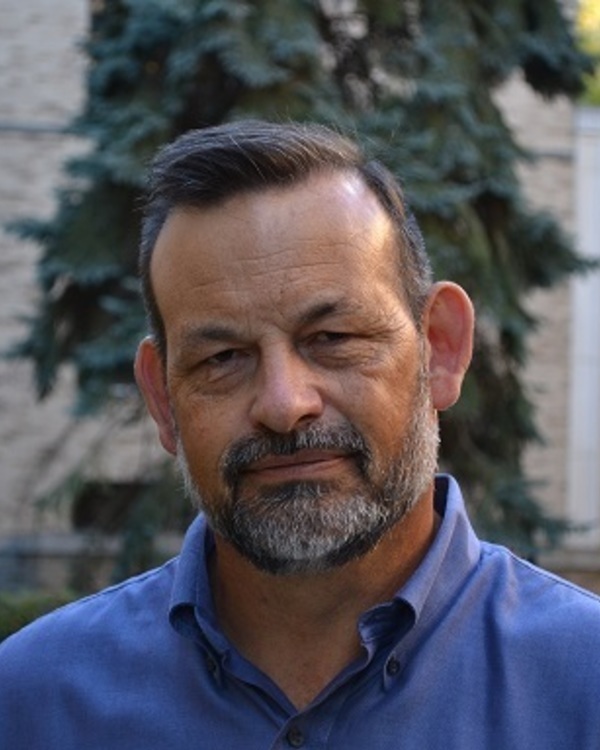
CCCG faculty fellow David O’Connor is a professor of philosophy. A native of South Bend, O’Connor graduated from Notre Dame in 1980 with a B.A. in philosophy and economics. He then went on to receive his Ph.D. in philosophy from Stanford with a dissertation discussing Aristotle on justice and friendship. O’Connor has published four books — most notably Plato’s Bedroom: Ancient Wisdom and Modern Love in 2015.
While teaching at Notre Dame, O’Connor has directed several specialty minors, which he has found to be the most satisfying part of his career. He directed the Philosophy, Politics, and Economics minor from 1992-2002, the minor in Philosophy, Religion, and Literature from 2007-2012, and has recently taken over the new minor in Business and the Common Good.
“These students really become my students. I get a chance to work with them both in very intense intellectual circumstances, but also in an ongoing way,” he says. This is a different experience than just teaching students within one or two courses, and O’Connor finds it to be especially valuable. O’Connor believes it is crucial that students seek out the smaller communities that can be found within these minors to engage in intellectual discourse and esprit de corps.
“For the intellectually motivated student, it is rare that a major can provide … smallness and inwardness,” O’Connor says. “It’s not the fault of majors, but a major, by design, is actually quite diffuse intellectually. In majors, students do not tend to get to know other students or faculty members very well, or be with them very often, in an intellectual pursuit.”
This sense of inwardness, which O’Connor defines as “a sense of significance and inquiry,” can be found in minors such as Constitutional Studies, which provides a context to meet students within a real intellectual community.
The new Business and the Common Good minor offers students the opportunity to debate competing models of the common good. The introductory course, cross-listed with Constitutional Studies, is currently being co-taught by Professor O’Connor and Professor Mary Hirschfeld.
“The ‘common good’ has always been a very controversial idea,” O’Connor says of the class. “We approach it in this course with a view to commercial society — how does wealth, commerce, and business contribute to, or compete with, the common good?”
O’Connor is especially grateful for the time he has been able to spend co-teaching classes with professors in other disciplines. From philosophy to classics, the Program of Liberal Studies to German, O’Connor sees these co-taught classes as a distinctive aspect of his career.
In the spring of 2024, Professor O’Connor hopes to co-teach a class with CCCG Director Philip Muñoz about democracy and virtue. This class has been developed out of conversations the professors have been having for the last couple of years.
“One of the issues that [we] really want to take up and think through is how a commitment to federalism can be seen as a Catholic expression of the commitment to subsidiarity. Those who take subsidiarity as central to the protection and development of moral agency have reasons to be wary of adopting a non-federalist, national-level, criminal regiment about abortion. The overturn of Roe v. Wade simply returns us to, I think, the appropriate state of federalism,” O’Connor says.
He plans to end the course with Catholic writings from what he calls the “optimistic period between the end of WWII and Roe v. Wade when Catholics thought they had become mainstream Americans.”
He remembers the optimism of the election of President John F. Kennedy for Catholics and the subsequent letdown of Roe. O’Connor believes these conversations are critical for Catholics today who have lived through the reign of Roe and are looking to find their place within the polity.
“Trying to use the SCOTUS to get your political work done seems to me to have been a losing game for Catholics. I think the focus of opposition in losing Roe v. Wade should have been its obvious failures with regard to proper state sovereignty … Now that requires us to have the patience of fifty fights rather than the magic wand of winning just once … those victories will often be partial and unsatisfying, but that [is] … the nature of politics in a fallen world.”
In addition to his regular philosophy courses, O’Connor will be teaching a new class in Fall 2023 entitled ‘The Stained Imagination: Adventures in Catholic Aesthetics.’ This course will “consider with special intensity old questions about beauty, both its enchantments and its temptations, in the context of Catholic art and literature … [using] Jacques Maritain and J.R.R. Tolkien."
Article contributed by CCCG Writing Fellow Merlot Fogarty.